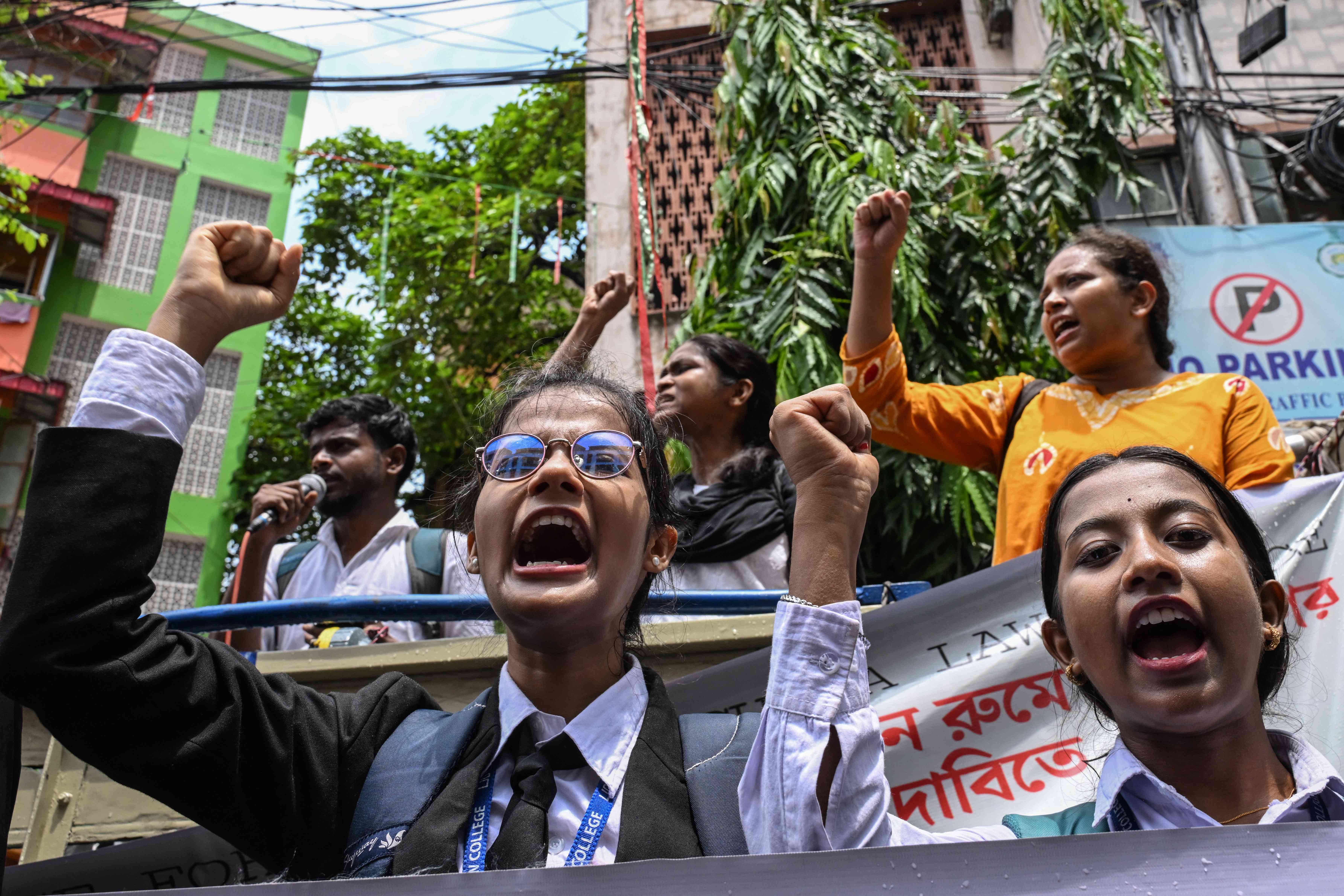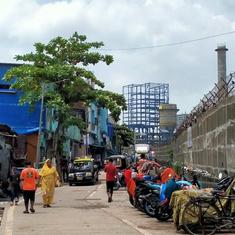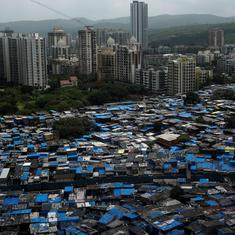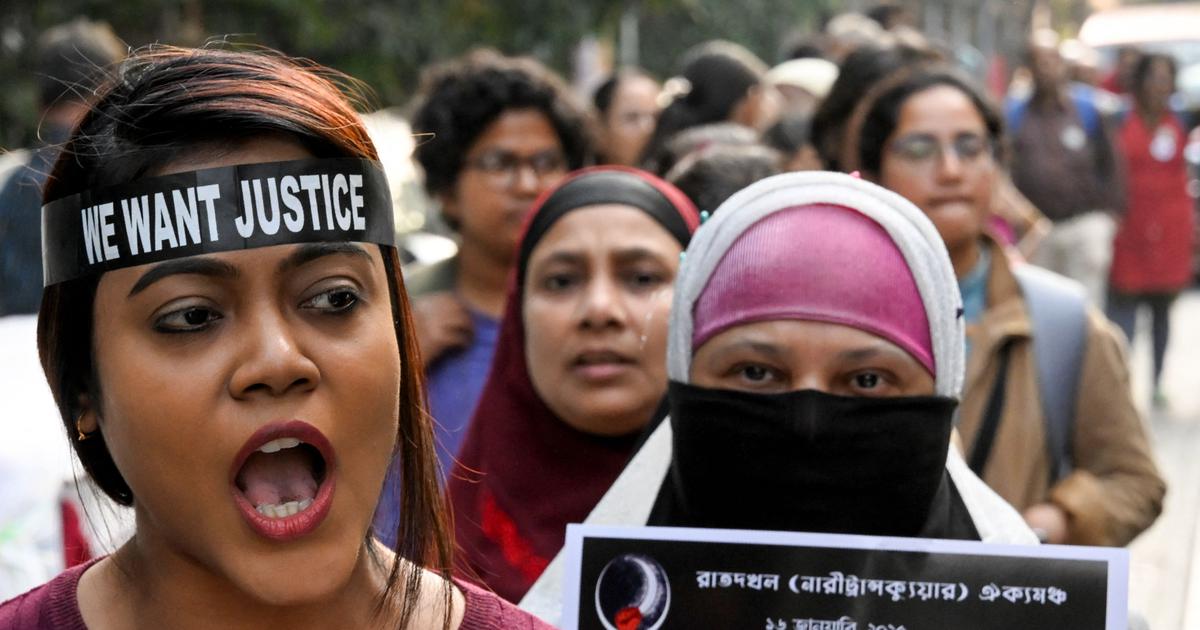Predictable, knee-jerk reactions and promises of harsh punishment followed the death by suicide of a 20-year-old woman from Odisha on July 14 after she was sexually harassed by a college faculty member.
The incident underscored how India’s reactive and punishment-focused response to violence against women is fundamentally inadequate.
The 20-year-old BEd student at Fakir Mohan Autonomous College in Balasore had set herself ablaze outside the principal’s office on July 12.
Two days later, she succumbed to 95% burn injuries at the All India Institute of Medical Sciences in Bhubaneswar
The student’s testimonials and letters being circulated by the media show that she was harassed for months by the head of department Samir Kumar Sahu, who allegedly demanded sexual favours to clear her attendance backlogs.
Sahu was arrested on July 12 and college principal Dilip Ghosh soon after.
The student had met Balasore MP Pratap Sarangi to report the harassment. She had also posted about the harassment on her X account tagging the Odisha Chief Minister Mohan Majhi, the state’s higher education minister and Union Minister of Education Dharmendra Pradhan, who is a Member of Parliament from Odisha. But her pleas went unheard.
The immediate aftermath followed a familiar script, with Majhi promising “strictest punishment under law”.
The state government hastily directed higher education institutions to constitute Internal Complaints Committees under the Sexual Harassment of Women at Workplace (Prevention, Prohibition and Redressal) Act, 2013, as if the absence of such mechanisms had been a sudden revelation rather than a longstanding oversight.
It shows that even basic legal mandates under the act are unaddressed in Odisha.
The opposition Biju Janata Dal and Congress held protests in Odisha demanding political accountability. But systemic accountability will not result solely from resorting to criminal law and punishing offenders. The systemic failures that enable such violence must be addressed.
However, since the 2012 Delhi gangrape, India has repeatedly turned to punitive legislation to address sexual violence.
The Criminal Law (Amendment) Act, 2013, and the Criminal Law (Amendment) Act, 2018, introduced harsher penalties for sexual offences.
After the rape and murder of a trainee doctor at the state-run RG Kar Hospital in August last year, West Bengal enacted the Aparajita Woman and Child Act, 2024. But less than a year later, in July, Kolkata witnessed another violent crime: a law student was gangraped in an alleged act of revenge by a former classmate after she refused to marry one of them.

The persistence of such crimes despite severe laws underlines the futility of seeking deterrence through retributive punishment alone.
Friends of the Odisha student say her ordeal was not confined to sexual harassment by Sahu but also included verbal abuse and harassment that she endured for months. Sexual slurs and rumours of her being of “loose” character were circulated on college WhatsApp groups. Demeaning language by her peers led to her being ostracised, possibly creating an environment of isolation and despair.
The college Internal Complaints Committee had found Sahu guilty and recommended his transfer but the directive was not implemented. These failings show that it was not just a case of individual misconduct, but a comprehensive institutional failure that pushed a young woman to the brink.
This occured despite the fact that the prevention of workplace sexual harassment law, which has mechanisms to check such incidents, includes educational institutions under its purview.
Section 19 of the act mandates employers to organise workshops and awareness programmess on sexual harassment and conspicuously display the consequences of sexual harassment as well as the manner of reporting to the internal complaints committee.
Merely focusing on punishing Sahu and the principal shifts focus away from the government’s shortcomings in implementing the safeguards already in place.
However, days after the incident, the Odisha government on July 19 announced the Shaktishree programme for women’s safety. Its main features include a mobile app to report complaints, an empowerment cell of female faculty and students, a code of conduct, online training on the prevention of sexual harassment at the workplace act and increased camera surveillance.
#Odisha takes a bold step with the #Shaktishree Initiative to ensure safer campuses for women. pic.twitter.com/eRzFhpeYUK
— CMO Odisha (@CMO_Odisha) July 19, 2025
The state government’s technocratic approach ignores ground realities such as the fact that women, especially those from marginalised groups, have low access to smartphones and the internet. Similarly, the reliance on student-led cells, training modules and periodic visits by mentors treats sexual harassment as coordination problem rather than one requiring fundamental cultural change.
The Balasore student had already reported her harassment through existing channels to the college internal complaints committee. More reporting mechanisms would not have protected her when the system failed to act on her complaints.
Majhi, while announcing the Shaktishree programme, did not say whether the government has the capacity to deliver these measures, and in what timeframe. It also is not clear how everyday incidents will be prevented while this new initiative is put into place.
Women as citizens
Implementing both, the prevention of sexual harassment at the workplace act and the Shaktishree initiative requires political will grounded in the recognition of women’s rights as citizens, not daughters, sisters or mothers.
This is difficult in Indian society where close-knit family relations and caste and religion markers determine the worth of women, creating a pervasive rape culture.
In another incident in Odisha earlier in July, BJP legislator Santosh Khatua used sexual slurs against Lekhashree Samantasinghar, a senior leader of the opposition Biju Janata Dal.
After Samantasinghar’s complaint, the police filed a case against Khatua. But the ruling BJP did not admonish its legislator or criticise his behaviour.
In March, after the Congress alleged that crimes against women in the state had increased, the state government refused to constitute a house committee to consider this phenomenon.
This political apathy creates an enabling environment in which violent crimes against women flourish with impunity, provoking public outrage only when they breach the narrow boundaries of respectability.
In the case of the Balasore student, this culture of impunity proved fatal, as political leaders turned a blind even as the student pleaded with them to intervene.
The path forward demands the strict implementation of the orders of the internal complaints committee, mandatory gender sensitisation programmes, regular institutional audits, robust grievance redressal mechanisms, psychosocial support and a cultural transformation that challenges deep-rooted social prejudices.
Unless these are addressed, preventable tragedies such as the death of the young woman in Balasore will continue.
Preeti Pratishruti Dash is a PhD (Law) student at the University of Cambridge, researching violence against women in Odisha, and an Assistant Professor of Law at National Law School of India University, Bengaluru.










